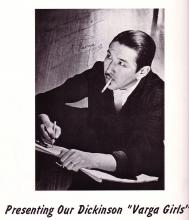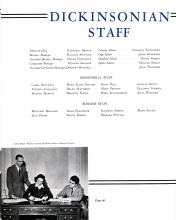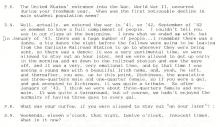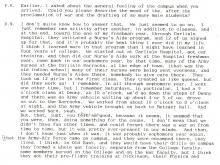Microcosm Presents the Varga Girls
The 1945 Microcosm presented Dickinson's "Varga Girls" in its features section. A photograph of Varga himself, signed "Best Wishes to Microcosm," indicates that the artist selected Dickinson's "Varga Girls." These women included: Ann Gates, Barbara Mulford, Dorothy Nagle, Alma Anderson, and Marion Clowes.





